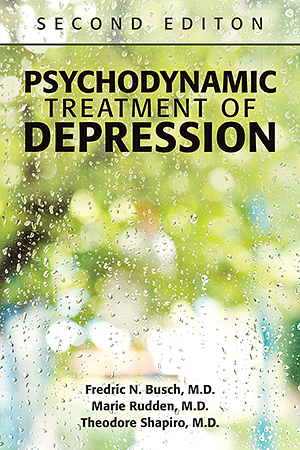Sections
Excerpt
Along with narcissistic vulnerability and related affects of shame, helplessness, and reactive anger, conscious or unconscious guilt often cripples depressed patients. Some patients reveal deep-seated feelings that they are bad or unworthy and are prone to attacking themselves—through self-criticisms or punishments—when they sense that they are behaving in an aggressive, competitive, or overly sexual manner. Examples of this are the cases of Ms. G in Chapters 4 (“Getting Started With Psychodynamic Treatment of Depression”) and 6 (“Addressing Narcissistic Vulnerability”), who felt devastatingly guilty about aggressive thoughts concerning her mother and boyfriend, and of Ms. V in Chapter 7 (“Addressing Angry Reactions to Narcissistic Injury”), who worried that she was harsh when expressing vindictive feelings toward her father.
Access content
To read the fulltext, please use one of the options below to sign in or purchase access.- Personal login
- Institutional Login
- Sign in via OpenAthens
- Register for access
-
Please login/register if you wish to pair your device and check access availability.
Not a subscriber?
PsychiatryOnline subscription options offer access to the DSM-5 library, books, journals, CME, and patient resources. This all-in-one virtual library provides psychiatrists and mental health professionals with key resources for diagnosis, treatment, research, and professional development.
Need more help? PsychiatryOnline Customer Service may be reached by emailing [email protected] or by calling 800-368-5777 (in the U.S.) or 703-907-7322 (outside the U.S.).



